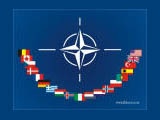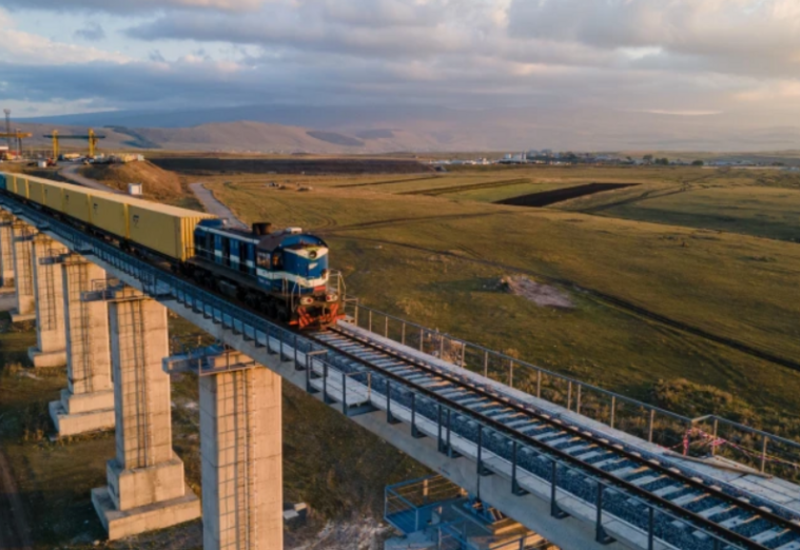|
|
TODAY.AZ / Politics
The Russian-led military alliance: A real counterweight to NATO?
16 February 2009 [16:44] - TODAY.AZ
By Alexander Jackson, Caucasian Review of International Affairs (www.cria-online.org), Caucasus Update No. 22, Feb. 16, 2009.
 The new rapid reaction forces of the Collective Security Treaty Organisation (CSTO), declared Russia’s president on February 4, would be equal in their military potential to NATO forces. This is optimistic. Russia aside, the CSTO member states are Armenia, Belarus, Uzbekistan, Tajikistan, Kyrgyzstan, and Kazakhstan, none of which are renowned for the quality of their armed forces. Tajikistan, warned the International Crisis Group this week, is on the path to becoming a failed state – hardly the ideal military partner. Tashkent and Minsk immediately expressed their reservations about the project. And the logistical difficulties, for instance shipping Central Asian units to fight in Georgia, hardly seem worth it in light of the quality of the troops.
The new rapid reaction forces of the Collective Security Treaty Organisation (CSTO), declared Russia’s president on February 4, would be equal in their military potential to NATO forces. This is optimistic. Russia aside, the CSTO member states are Armenia, Belarus, Uzbekistan, Tajikistan, Kyrgyzstan, and Kazakhstan, none of which are renowned for the quality of their armed forces. Tajikistan, warned the International Crisis Group this week, is on the path to becoming a failed state – hardly the ideal military partner. Tashkent and Minsk immediately expressed their reservations about the project. And the logistical difficulties, for instance shipping Central Asian units to fight in Georgia, hardly seem worth it in light of the quality of the troops.But the decision to create the rapid reaction forces (RRF), at a CSTO summit in Moscow, has caused a wave of speculation and analysis by commentators already preoccupied with Kyrgyzstan’s Moscow-influenced decision to close the Manas airbase to US forces. Sergei Blagov at Eurasianet described the two moves as a “one-two punch combination designed to send the Obama administration a powerful message”, whilst Ariel Cohen at the Heritage Foundation apparently accepted President Medvedev’s comparison to NATO without comment. The reaction from Azerbaijan and Armenia was instructive in this regard. Analysts and politicians in both states wondered what impact the RRF would have on the Nagorno Karabakh conflict, and whether CSTO forces would be used to attack Azerbaijan in the event of a new war.
All of this speculation and analysis misses two fundamental points: that nothing new and nothing significant has really been announced. The CSTO was originally formed in 2002 and has always had, in theory, a military component, the Collective Rapid Deployment Force (CRDF), consisting of designated Central Asian units located in their home countries, and a Russian ground and air detachment at the Kant airbase in Kyrgyzstan (the reliance on heavy artillery, tanks and fighter-bombers at Kant casts doubt on the ‘anti-terrorism’ mission of the force). President Medvedev acknowledged in Moscow, however, that this force exists only on paper, and that the new force would be different.
But a sense of d?j? vu hangs over the RRF plans nonetheless. In May 2007, the CSTO’s general secretary announced plans to form an Anti-Terrorist Committee, peacekeeping forces (which technically already existed), and collective anti-terrorist forces. Nothing much has been heard since, and it is reasonable to judge that these structures are more or less non-existent. The CRDF, which has participated in military exercises, is the only CSTO institution which appears to exist in any real sense. The RRF would probably, to all intents and purposes, replace the current forces, so it would be mistaken to assume that it marks a major upgrade in the aims of the CSTO. If anything, it’s more of a rebranding exercise - judging by the speculation on the implications of the move, a successful one.
As for the significance of the RRF proposal, there are two interlinked considerations. The first, as noted above, is that nothing may come of the new force. The occasional military exercise, a yearly document calling for greater co-operation, and nothing else. This is a distinct possibility. The second consideration is that part of the reason the CSTO is so plagued by institutional inertia, especially when compared to an organisation like NATO, is the dominance of Russia. Moscow has used the CSTO as a tool to legitimise its security presence in Central Asia, but the downside of this has been that Russia is essentially required to ‘carry’ the organisation, for instance through supplying cheap hardware. To an extent this dominance is in absolute terms – Russia’s military, financial and bureaucratic muscle is vast, despite its many problems – but also relative: the Central Asian states are simply too weak to be capable of operating a multilateral, rapid-response security outfit, or of bringing anything particularly useful to the table. Although America dominates NATO in an absolute sense, Washington can rely on its allies to provide well-trained, well-equipped military forces which can deploy around the world (notwithstanding the row over Afghan troop levels).
Moscow cannot. The figures speak for themselves. Of the 15,000 strong RRF, Russia would contribute 10,000, Kazakhstan 3-4,000, and the other Central Asian states, Armenia and Belarus would between them produce 1-2,000. In qualitative terms, only Kazkhstan’s elite airborne brigade will come close to the standard of Russian forces. The internal security problems faced by most Central Asian states will make them reluctant to leave their best troops sequestered at the RRF’s Russian headquarters, and they may drag their feet when it comes to permanently stationing units there, as noted by Pavel Felgenhauer at the Jamestown Foundation.
In other words, Russia will still have to do almost all of the ‘heavy lifting’ itself in any crisis, so the reality on the ground will not change. Take the example of the Armenia-Azerbaijan conflict. Russia has been keen to reassure Baku that the new forces will not be used against Azerbaijan, and that Azerbaijan is not a realistic field of operations for the CSTO. This raises the implicit point that Russia already possesses the capability – and, through its bilateral alliance with Armenia, the rationale - to intervene unilaterally if it wished. It does not need the support of Tajikistan to threaten Azerbaijan, and whether intervening Russian forces are wearing their CSTO hats or their Russian hats is irrelevant – to Baku and to the world.
The announcement about the RRF was a public relations stunt more than anything else. Moscow is throwing out a lot of conflicting signals to Washington at the moment, such as pressuring Kyrgyzstan to close Manas whilst implementing the transit of NATO supplies to Afghanistan across Russian territory, and it is likely that the CSTO decision is a minor signal in this pattern of antagonism and co-operation. The reason is not entirely clear, but nor is it especially important. Do not expect NATO, or President Obama, to lose much sleep over the CSTO.
/www.cria-online.org/
URL: http://www.today.az/news/politics/50705.html
 Print version
Print version
Views: 2081
Connect with us. Get latest news and updates.
See Also
- 04 February 2026 [13:13]
Armenian emblem with two heads - 04 February 2026 [11:11]
Azerbaijan, Armenia and Masdar - 04 February 2026 [09:33]
President Ilham Aliyev held expanded meeting with Armenian Prime Minister in Abu Dhabi - 03 February 2026 [14:14]
Rumors about the Catholicos’ arrest are circulating in Armenia once again, raising the question of their purpose - 03 February 2026 [12:12]
Zangezur corridor become part of TEN-T: European Union is joining fight for South Caucasus - 03 February 2026 [10:28]
President Ilham Aliyev meets with Secretary General of Muslim Council of Elders in Abu Dhabi - 02 February 2026 [18:03]
Youth Day 2026: Azerbaijan recognizes young achievements - 02 February 2026 [13:13]
The army is being taken away from Etchmiadzin - 01 February 2026 [16:55]
Russia sends new grain shipment to Armenia via Azerbaijan transit route - 31 January 2026 [01:46]
UN Geneva hosts high-level talks on protecting Caspian Sea
Most Popular
 Zangezur corridor become part of TEN-T: European Union is joining fight for South Caucasus
Zangezur corridor become part of TEN-T: European Union is joining fight for South Caucasus
 US moving forces into Middle East - What comes next with Iran?
US moving forces into Middle East - What comes next with Iran?
 Pakistan says 48 killed in coordinated attacks in Balochistan
Pakistan says 48 killed in coordinated attacks in Balochistan
 The army is being taken away from Etchmiadzin
The army is being taken away from Etchmiadzin
 Slovakia PM adviser quits after Epstein messages surface in newly released US files
Slovakia PM adviser quits after Epstein messages surface in newly released US files
 Grain, fuel and politics of peace: How trade redrawing Armenia–Azerbaijan relations
Grain, fuel and politics of peace: How trade redrawing Armenia–Azerbaijan relations
 SOCAR, Huawei discuss digital transformation and advanced technologies in oil, gas sector
SOCAR, Huawei discuss digital transformation and advanced technologies in oil, gas sector
